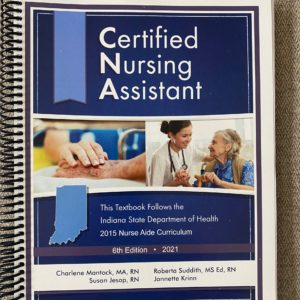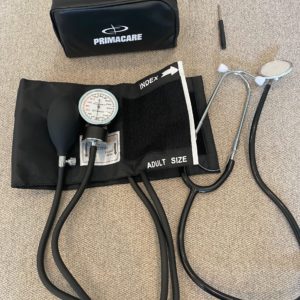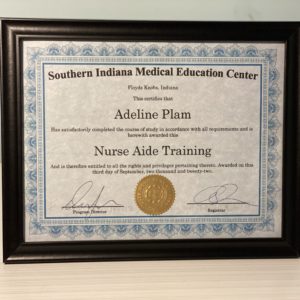Upcoming Courses
Day (9a-2:30p) Evening (5p-9p)
Mar. 9 – 27 Mar 30 – Apr 17
May 04 – 22 Jun 1 – 19
Jul. 6 – 24 Oct. 5 – 23
Sep. 8 – 25
Nov. 2 – 20
Weekend (8a-4p)
Aug. 1 – 30
Certified Nurse Aide Training – Standard
$1,485.00
– Blended Online & Instructor-Led Training
– Hands-on Simulation & Nurse Aide Residency
– American Heart Association First Aid CPR AED Certification
Enrollment is based on the following requirements;
(1) Pre-Admission Assessment: A measure of your current English and mathematical skills. This is an online, 25-question, multiple-choice test. You are required to choose the best answer.
(2) Background Check: Local and national criminal check. Entries found on the background check do not automatically disqualify you from the course.
(3) Physical Exam: Complete the physical examination form signed by a licensed primary care provider, including the 2-step tuberculosis screening.
(4) Tuition Payment: The first (1st) payment for the Nurse Aide Trining is due before the start of the course. Make a payment at https://simeconline.com/
- American Heart Association CPR First Aid AED Certification
- Blood Pressure Cuff and Stethoscope
- Full Set of Scrubs
- Certificate of Completion
- Job Placement Assistance
- 100% Tuition Reimbursement Available







